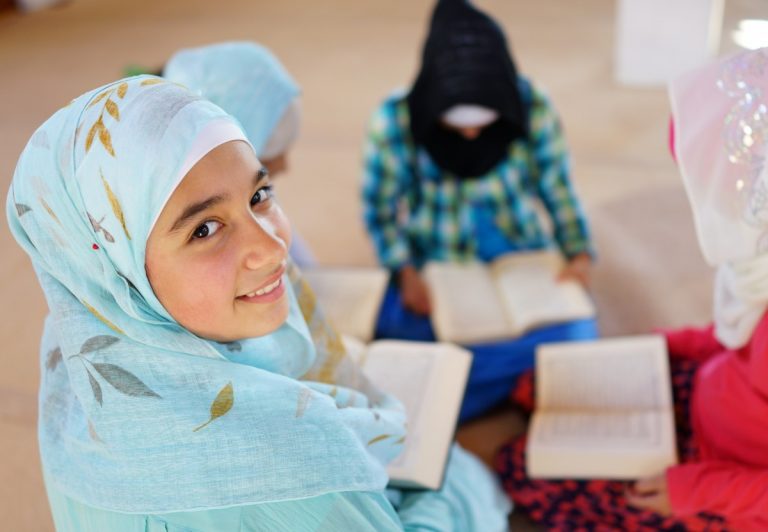
A new type of women-only Islamic seminaries is on the rise in India. Bringing together a blend of traditional religious studies and modern secular education, these pioneering institutions are making the closed-off area of higher Islamic theology accessible to girls.
Earlier this month, graduating students of Al Ghaith Wafiyya College in the Indian state of Kerala experienced a one-of-its-kind convocation ceremony after successfully completing a five-year course in Islamic Studies coupled with a bachelor’s degree from a recognised secular university.
The thing that sets this convocation apart from any other is that it was exclusively for women, run by women, attended by women. From the valedictory speech right down to setting up the microphone, all tasks were completed by women.
As reported by Qantara.de, the groundbreaking ceremony saw 111 female graduates proudly receive their “sanad” – which formally endorses them as Islamic scholars, connecting them with what is believed to be the unbroken tradition of Islamic scholarship beginning with the Prophet Muhammad and entrusting them with its transmission to the next generation.
Hey, have you seen @BabaKristian's crowdsourced list of women & GNC/NB scholars of Islam & Muslims? Help add names! https://t.co/OXo8PA8Lwj
— Abdel Majid Al-Turkey (@kecia_ali) August 23, 2017
“Sanad” is traditionally conferred on male scholars on their completion of Islamic studies, formally authorising them to take up teaching and other scholarly responsibilities as well as to officiate at religious events and offer pastoral services.
By breaking with tradition, the women-only Islamic seminary is aiming to reclaim women’s place within the enterprise of Islamic scholarship.
Founded by scholar and education activist, Abdul Hakeem Faizy, the seminary hopes not only to make Islamic studies accessible to girls, but also to blend the traditions of Islamic teaching with modern secular education.
Crafting an integrated curriculum combining the two schools of thought, Abdul Hakeem has spread his concept across more than 60 seminaries run by traditional Muslims in the state of Kerala. Included in these are around 15 women-only colleges, known as “wafiyya”.
By incorporating contemporary science alongside classic Islamic education, Abdul Hakeem aims to produce religious scholars who are not only equipped with an in-depth knowledge in the various disciplines of Islam, but also with a sophisticated understanding of the scientific, cultural, political and intellectual currents that shape our modern world.
As the all-female graduating class of Al Ghaith Wafiyya College look to the future, they do so with both Islamic studies and a bachelor’s degree under their belt and an ability to understand and appreciate religious texts from a broader perspective thanks to the amalgamation of these two important disciplines.
Liked this? Then you’ll love these…
Malala urges Nigeria to prioritise education system
Indonesian Hijab-wearing Muslim metal group sings about nation’s state of education







